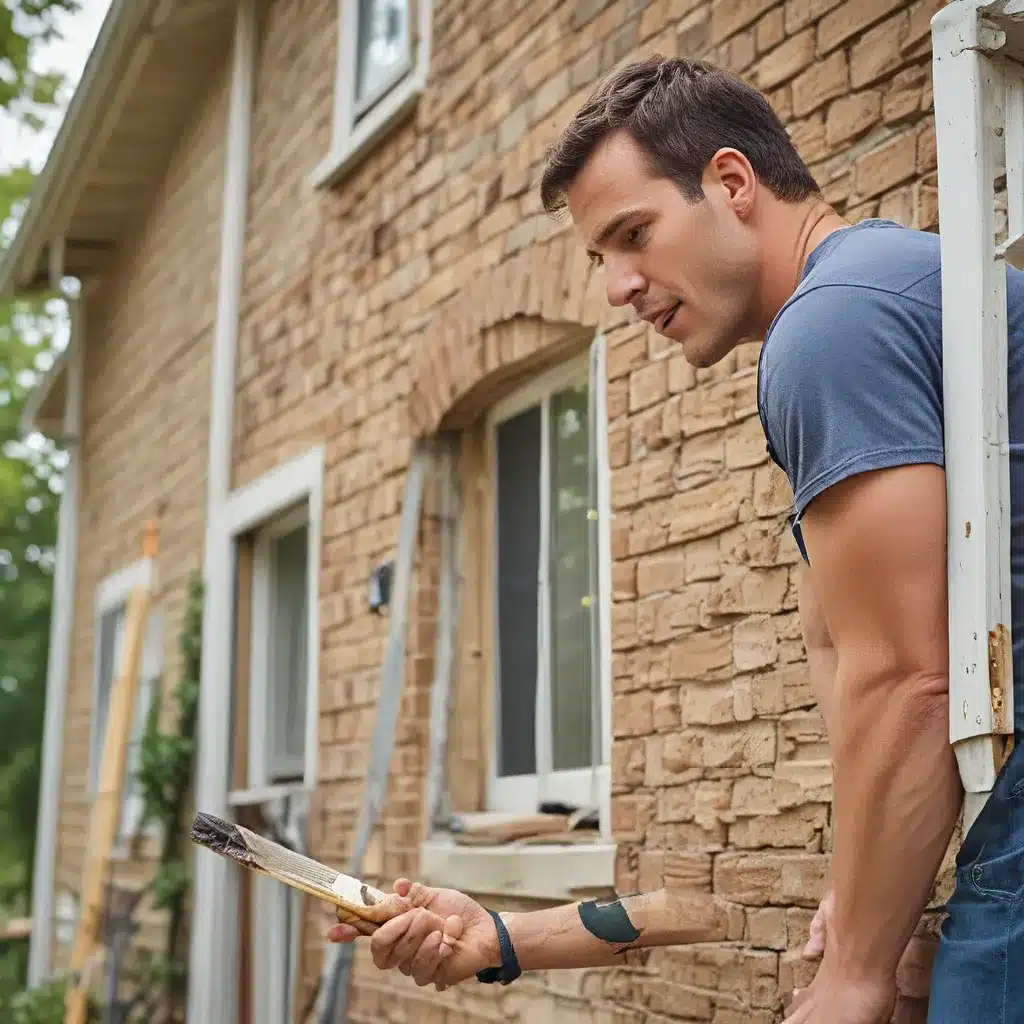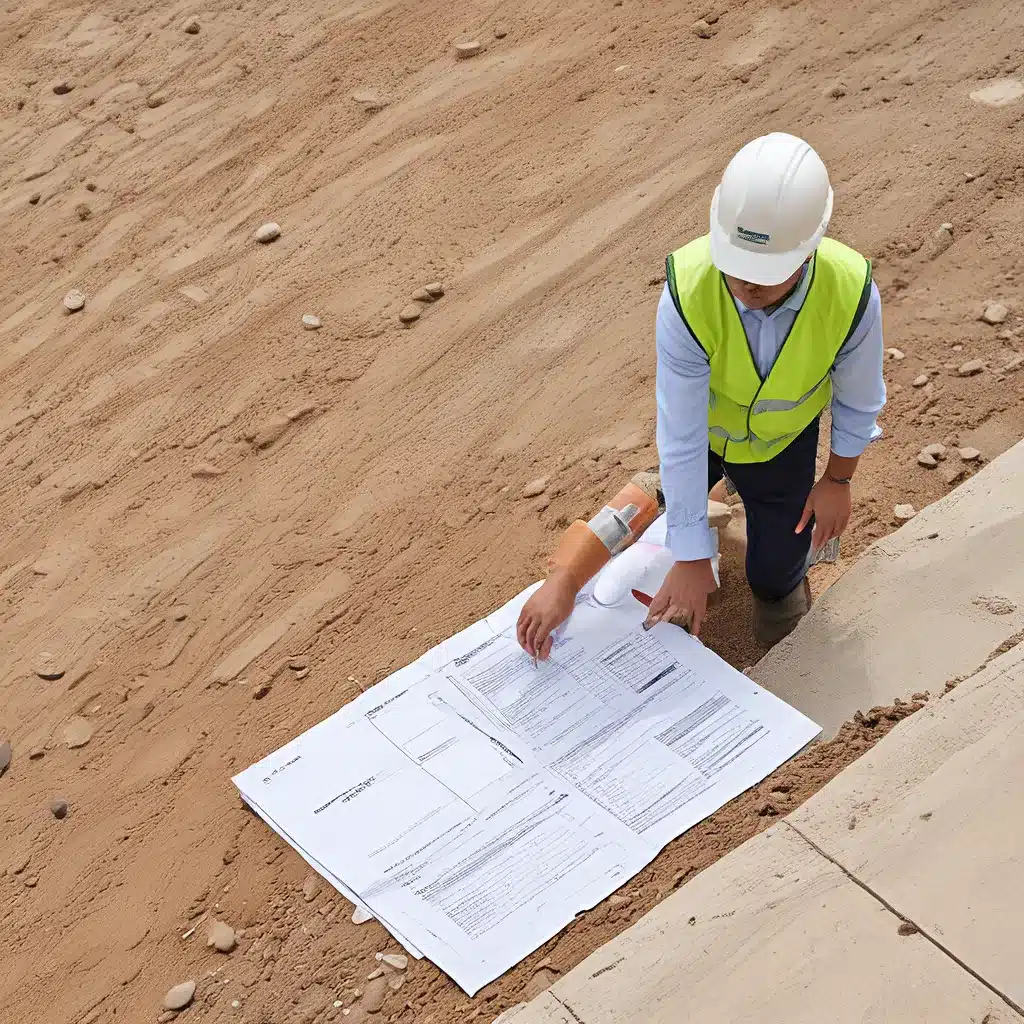
As a homeowner, I know the feeling all too well – that sinking sensation in the pit of your stomach when you discover an unexpected issue with your home. Whether it’s a leaky faucet, a malfunctioning boiler, or a cracked foundation, these problems can quickly turn into a financial nightmare. But what if I told you there’s a way to avoid these costly surprises?
It’s all about mastering the art of home maintenance. By taking a proactive approach and implementing some straightforward steps, you can not only prevent major issues from arising but also extend the lifespan of your home’s systems and features. And trust me, your wallet will thank you.
The Importance of Routine Boiler Maintenance
Let’s start with the beating heart of your home’s heating system – the boiler. A well-maintained boiler is essential for keeping your abode cozy and comfortable, especially during those chilly winter months. But don’t just take my word for it. According to the experts at RS Andrews, a boiler maintenance service is an absolute must for any homeowner looking to ensure their heating system remains reliable, efficient, and safe.
You see, a properly maintained boiler not only keeps your home toasty warm, but it also helps reduce your energy costs and extends the lifespan of your heating system. And the best part? Understanding the basics of boiler care can make a world of difference.
From monitoring and maintaining the optimal water pressure to ensuring proper ventilation, there are several key steps you can take to keep your boiler in tip-top shape. Maintaining the correct water pressure, for instance, is crucial for efficient operation and longevity. Water pressure that’s too low can hamper the system’s ability to circulate warm water throughout your home, leading to uneven heating and discomfort. On the other hand, excessively high pressure may strain your boiler’s components, increasing the risk of breakdowns and costly repairs.
But wait, there’s more! Proper boiler ventilation is not just about efficiency – it’s also a crucial safety measure. Boilers, like any combustion appliance, require a steady supply of air to burn fuel safely and effectively. Inadequate ventilation can lead to incomplete combustion, producing carbon monoxide – a colorless, odorless gas that can be downright deadly.
So, how do you ensure your boiler has the ventilation it needs? Well, the experts recommend checking for signs of poor ventilation, such as soot buildup around the boiler, a yellow or orange flame instead of blue, and condensation in the room where the boiler is installed. These are all indicators that your boiler isn’t receiving enough air for complete combustion.
Radiator Maintenance: The Key to Comfort
But the boiler is just one piece of the puzzle. Let’s talk about another essential component of your home’s heating system – the radiators. Radiator maintenance, specifically bleeding and balancing, is crucial for optimal performance and a cozy, comfortable living environment.
Radiator bleeding is the process of releasing trapped air from your radiators. You see, air can enter the central heating system during maintenance or when the system is filled with water. This air can form air locks that prevent hot water from circulating properly, resulting in cold spots on the radiator.
Radiator balancing, on the other hand, involves adjusting the valves on your radiators to ensure an even distribution of hot water throughout your home. This process ensures that all radiators heat up at the same rate, preventing some rooms from being colder or hotter than others.
While many homeowners feel comfortable bleeding radiators, balancing is a more intricate process that may require professional assistance. A heating engineer can efficiently balance your radiators, ensuring your heating system operates at its best.
Protecting Your Pipes: The Importance of Insulation
Now, let’s move on to another critical aspect of home maintenance – pipe insulation. Insulating your pipes is crucial for maintaining an efficient and reliable heating system, especially during the colder months. When temperatures drop, unprotected pipes are at risk of freezing, which can disrupt your heating system’s efficiency and lead to costly pipe bursts and water damage.
Pipe insulation acts as a protective barrier, keeping the water inside your pipes warmer and significantly reducing the chances of it freezing. This is particularly important for pipes in unheated areas of your home, such as basements, attics, garages, and external walls.
While insulating pipes is a manageable DIY project for many homeowners, don’t hesitate to seek professional help if you’re unsure about the process or have pipes in hard-to-reach areas. A pro can ensure your pipes are adequately protected against the cold, saving you from potential issues down the line.
Monitoring the Boiler’s Flame: A Simple Diagnostic Tool
But wait, there’s more! Keeping an eye on the color of your boiler’s flame is another simple yet effective way to gauge its health and efficiency. A healthy boiler flame should be a bright blue color, indicating complete combustion and efficient gas burning. However, if the flame turns yellow or orange, it’s a sign that the combustion process is incomplete, potentially leading to the production of carbon monoxide – that dangerous, odorless gas we mentioned earlier.
Ignoring changes in flame color can lead to several problems, so it’s essential to address any issues promptly. By monitoring the color of your boiler’s flame, you can catch potential problems early, ensuring your system runs safely and efficiently.
Maintaining a Clear Space Around Your Boiler
Maintaining a clear space around your boiler is not just a matter of organization or aesthetics – it’s a critical safety measure that ensures your heating system operates efficiently and safely. Boilers require adequate airflow to function properly, and clutter can restrict this airflow, leading to overheating and, in severe cases, fires.
So, what does this mean for you as a homeowner? It’s simple – keep the area around your boiler free from obstructions. This not only enhances the boiler’s performance but also safeguards your home and family. Additionally, it’s a good idea to visually inspect the area regularly for any signs of wear, damage, or leakage. Early detection of these issues can prevent more serious problems down the line.
Detecting Warning Signs Early
Speaking of early detection, it’s crucial to be vigilant about the health of your boiler system. Catching issues early can mean the difference between a simple fix and a costly, complex repair. Being proactive about your boiler’s operation can also ensure it runs efficiently, saving you money on energy bills and extending its lifespan.
So, what are the warning signs you should be on the lookout for? Keep an eye out for changes in the boiler’s flame color, unusual noises, and any signs of leakage or wear. Additionally, pay attention to the boiler’s performance – if you notice uneven heating or a sudden drop in efficiency, it’s time to take action.
By staying attuned to your boiler’s health, you can prevent minor issues from escalating into major concerns, ensuring your heating system remains a reliable source of warmth for years to come.
Embracing Energy-Saving Practices
But the benefits of proactive home maintenance don’t stop at preventing costly repairs. By embracing energy-saving practices with your boiler system, you can also significantly reduce your heating bills and do your part for the environment.
What does this look like in practice? Well, for starters, you can try lowering the thermostat by a degree or two and wearing an extra layer of clothing. Programmable thermostats can also be a game-changer, allowing you to automatically adjust the temperature based on your daily routines and schedules.
Another simple yet effective tip? Insulate, insulate, insulate! Proper insulation not only keeps your home cozy but also helps your boiler work more efficiently, reducing the amount of energy needed to heat your living spaces.
And let’s not forget about the power of regular maintenance. By keeping your boiler well-maintained, you can optimize its performance, ensuring it’s running at peak efficiency and minimizing energy waste.
By adopting these energy-saving habits, you’ll not only enjoy a warm, comfortable home but also contribute to a more sustainable future. And let’s be honest, who doesn’t love the idea of lower energy bills?
The Invaluable Role of Professionals
Now, I know what you might be thinking: “But I’m not a boiler expert – how am I supposed to handle all of this?” Fear not, my friend, because that’s where the professionals come in.
Consulting with boiler maintenance experts is a crucial step in ensuring your heating system operates safely, efficiently, and reliably. These professionals have the knowledge and experience to handle all your boiler needs, from inspections and tune-ups to repairs and replacements.
And for those of us in the Atlanta, Georgia area, Reading General Contractor is the go-to solution. Their team of skilled technicians is equipped to tackle any boiler-related issue, ensuring your system runs smoothly and efficiently. Plus, they can provide valuable insights on how to choose the best heating system for your home, whether it’s a heat pump or a traditional furnace.
So, don’t hesitate to give them a call at 770-674-8996 and experience the difference with their expert team. After all, your home’s comfort and your peace of mind are worth the investment.
In the end, mastering home maintenance is all about taking proactive steps to prevent costly repairs and ensure your living space remains a haven of comfort and efficiency. By understanding the importance of routine boiler maintenance, radiator care, and pipe insulation, as well as embracing energy-saving practices and seeking professional guidance, you’ll be well on your way to a healthier, happier, and more cost-effective home. So, what are you waiting for? Let’s get started on your home maintenance journey!
Related posts:
No related posts.




